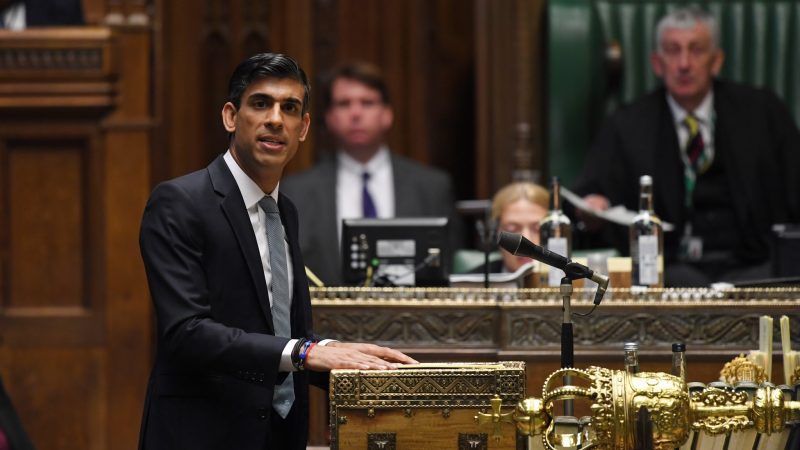
Angela Rayner has said that “Rishi Sunak has no mandate and no idea what working people need”, arguing that the country needs to hold a general election and be given “the chance for a fresh start with Labour”.
Reacting to the news that the former Chancellor had this afternoon been appointed as the new Conservative leader and Prime Minister, following Penny Mordaunt’s withdrawal from the second Tory leadership contest this year, Rayner said “we need a general election so the public get a say on the future of Britain”.
“The Tories have crowned Rishi Sunak as Prime Minister without him saying a single word about how he would run the country and without anyone having the chance to vote,” the deputy Labour leader said.
“This is the same Rishi Sunak who as Chancellor failed to grow the economy, failed to get a grip on inflation, and failed to help families with the Tory cost-of-living crisis.”
Following Liz Truss’ resignation last week, after having served just 44 days as Prime Minister, the Conservative Party revealed that it would elect a new leader within a week. Candidates were required to secure the backing of 100 Tory MPs, after which they were due to face the second ballot of Tory members this year.
Mordaunt was unsuccessful in securing the endorsements of enough MPs by the 2pm deadline, however, making the former Chancellor the de facto winner. Mordaunt received public support from 26 MPs. Sunak got the backing of 193. Mordaunt released a statement at 1.58pm today conceding defeat.
“It’s the same Rishi Sunak whose family avoided paying tax in this country before he put up taxes on everyone else. With his record – and after Liz Truss comprehensively beat him over the summer – it’s no wonder he is dodging scrutiny,” Rayner added.
“Rishi Sunak has no mandate and no idea what working people need. We need a general election so the public get a say on the future of Britain – and the chance for a fresh start with Labour.”
Sunak’s victory came after the former Prime Minister Boris Johnson, who was forced to resign following numerous scandals that culminated in a record-breaking 57 ministerial resignations, dropped out of the contest late on Sunday evening.
After having been touted as a potential replacement for Truss, and travelling home from the Caribbean where he had been on holiday, the disgraced former Prime Minister claimed that he had “cleared the very high hurdle” for the nominations threshold but that “this is simply not the right time” for him to return.
Unite general secretary Sharon Graham said this afternoon: “Changing the leader of Conservative Party, changes nothing for workers and communities who are being lined up for austerity mark two. Yet again, workers and communities are paying for a crisis not of their making. The economy is broken.
“I will fight unashamedly for workers to get more money in their pockets. Today’s vote means Rishi Sunak will become the third UK Prime Minister in seven weeks. If democracy means anything to him, he should put his election, by Conservative MPs, to the test by calling a general election.”
Truss came to power after beating Sunak in the first Conservative leadership contest of 2022. She came under widespread criticism after her Chancellor, Kwasi Kwarteng, unveiled the ‘mini-Budget’ – after which the pound fell to its lowest level against the dollar and interest rates rose sharply.
Kwarteng was sacked after serving for just 38 days as Chancellor following several U-turns, making him the second shortest serving Chancellor in British history. His successor, Jeremy Hunt, subsequently confirmed that the government would be abandoning “almost all” tax measures announced in the fiscal statement.
Suella Braverman was forced to resign as Home Secretary and the Prime Minister suffered a humiliating rebellion over the government’s position on fracking last week, during which Tory MPs complained of being manhandled by the whips.
While announcing her resignation on Thursday, the outgoing Prime Minister said she would remain in office until a successor is chosen. She will be the shortest serving Prime Minister in British history. George Canning, the next shortest serving Prime Minister, died after contracting tuberculosis after 118 days in office in 1827.




More from LabourList
Letters to the Editor – week ending 15th February 2026
‘Labour council candidates – it’s tough, but all is not lost’
‘Labour won’t stop the far right by changing leaders — only by proving what the left can deliver’